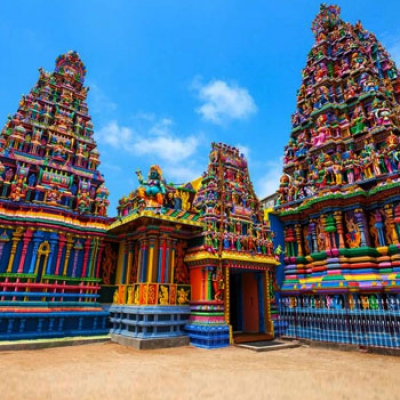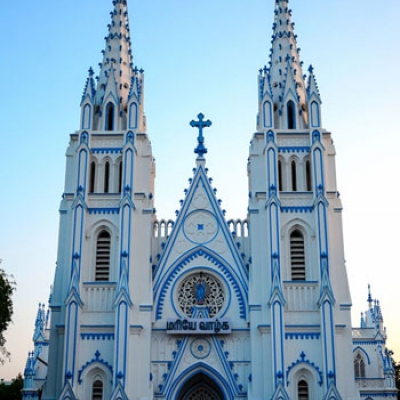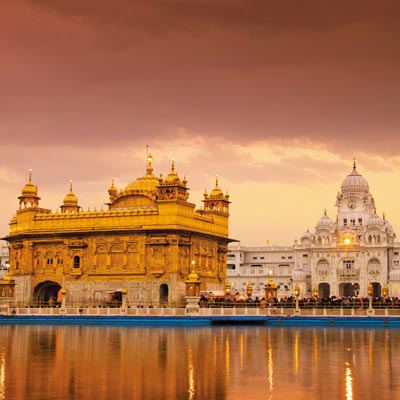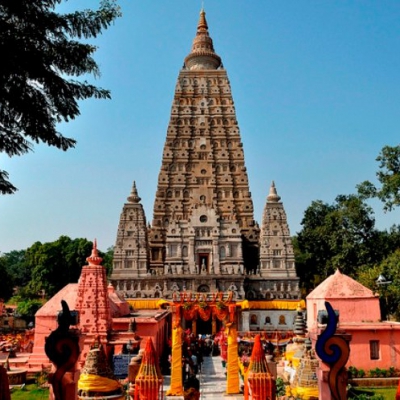Hindu mythology is prosperous, multifarious and comprehensive. It is the oldest living theology of the world. It depicts the trivial next to the cosmic, terrible along with philanthropic and the ostentatious along with the sublime. Vedic literature is considered the earliest source of Hindu mythology. This Vedic literature is the oldest text comprising four Vedas or called “Manuscripts of Knowledge”. Yajurveda, Rigveda, Atharvaveda and Samaveda are the ancient Hindu religious study books and symbolize the religiosity of the Aryan who invaded the subcontinent over the time period of 1400-500 BC.
Hindu Religion
As this Hinduism integrates a wide array of heterogeneous elements, it constitutes a multifaceted but incessant whole and as it is considered covering the whole life’s aspects. It contains economical, social, religious, artistic and literary aspects too. Hence it resists a specific explanation. It is the universal nucleus of characteristics that majority of Hindus share.
Hindu Mythological Beliefs :
According to the narration of Hindu religion or Hinduism, three Gods take charge of the world; Brahma-the originator, Vishnu-the preserver and Shiva-the destructive force. These three supernatural powers of Hindu myths also have consorts in terms of deities. Sarasvati the goddess of learning is the consort of Brahama, Lakshmi goddess of wealth as well as prosperity is the campanion of Vishnu and Parvati, who is worshipped as Durga or Kali is consort of Lord Shiva.
Apart from these, Hindu mythology is encapsulated by a number of other deities and Gods. Lord Ganesha with elephant’s head and human body is the son of Parvati and Shiva, Surya, the lord of the sun, Hanuman, who is a strong ape, Samundra, Lord of the sea, Ganga Ma, the deity of river Gangesh, Shakti, Goddess of power and Prithvi, the Goddess of the earth.
Source Of Hindu Mythology :
Idols of Hindu epics like Ramayana and Mahabharata are canonized and still exist in day-to-day life of common man. The Hindu Gods are at once phenomenal and human being and there is different feeling of familiarity and affection towards them.
Mahabharata :
The exciting Mahabharata verses narrate the tale of the dynastic clash between the Kauravas and the Pandavas, who were relatives or close cousins. In this great epic Lord Krishna has played a vital role. He served as a companion, truth-seeker as well as guide to Arjuna, who was one of the brothers of Pandavas. Lord Krishna helps Arjuna triumph over his hesitation to exterminate his close relatives in the battleground. The astute teachings and philosophy of Krishna have been personified in the holy book of Bhagwad Gita. Although the admired figure of Krishna is that of a supernatural being, who in his childhood steals butter, and who, in his young age, beautifully plays the flute and entice cowherd girls and cows alike; while in his adult age he has been represented as the shrewd thinker with a more grave side to his character.
Ramayana :
Rama, the superman of this Great epic, symbolizes qualities such as audacity, honor, and valor and is considered as an idol of manliness. His companion Sita is the archetypal Indian wife who had been taken by force and without permission by Ravana, the demon emperor of Lanka, while both Rama and Sita were on exile. Sita's final rescue by Lord Rama, his faithful Hanuman and brother Lakshmana, are all woven into this enthralling fiction. Tales from this great epic have been transferred verbally from one generation to the other generation in Indian society. Religious celebrations, fairs and traditions have kept these myths alive, and there is by no means any occasion that doesn’t provide an opportunity to repeat these ancient tales.
One God, Many Names-Hindu Mythology Basics : Based on some of the ancient Hindu beliefs and faiths, in Hindu religion some Gods possess more than one name. Lord Shiva is also popular as Mahadev, Shankar, Natraj, Mahesh, Shambhu, Jatadhari among others. His followers and worshippers also pay reverence to his carrier called Nandi and an exclusive stone architecture related to Shiva called Shiva-Lingam. Lord Ganesha is also famous as Ganpati; Lord Vishnu also known as the incarnation of Rama, Narsimha, Krishna, Buddha and Parsuram has a significant place among devotees. He has various names like Gopal, Shyam, Ghanshyam, Bansuriwala, Mohan, Kishan along with many others. There are also some of Gods who can change their forms from one to another just like Devi Parvati who can take the form of Durga or Kali to protect the humanity.
Hindus don’t worship all of these Gods; however some of the Hindus worship or follow some specific Deities or Gods, who hold predominance in some specific regions. According to personal needs Hindus pay reverence towards Gods, for instance those whose occupation is wrestling, physical sports and body building generally worship Lord Hanuman, who according to Hindu legends depicts physical strength. Those who run any sort of business have great devotion in Goddess Lakshmi the deity of wealth.
Most of the Hindus worship various idols, however there are many Hindus too who have faith in One God and perceive the images of various God and Goddess as one God. They don’t have faith upon idolization.
Hinduism Mythology: Unique And Encompassing :
The best aspect of Hinduism is that there is no confliction about the choice of God. One devotee might pay reverence to Ganesha while a close relative or friend might worship Vishnu, Shiva, Kali or any other God. Both honor each other’s choice. It is the Hindu mythology that brings a sense of tolerance among devotees that helps them express their devotion to various supernatural powers o the earth. About 80% population of India are Hindus and the shrines and holy temples hold different Gods and Goddess under one roof. It is the most common myths of India.
Some Of The Hindu Pilgrimage Destinations In India Are:
- Allahabad | Haridwar | Bhuwaneshwar | Mathura | Khajuraho | Tirupati | Amarnath | Rameshwaram | Kanchipuram | Chidabaram | Puri | Konarak | Varanasi | Rishikesh | Dwarka | Ayodhya | Madurai | Kanyakumari | Shirdi | Pushkar | Badrinath | Vrindavan | Kedarnath | Gangotri | Puttaparthi | Mahabalipuram | Yamunotri | Thanjavur



